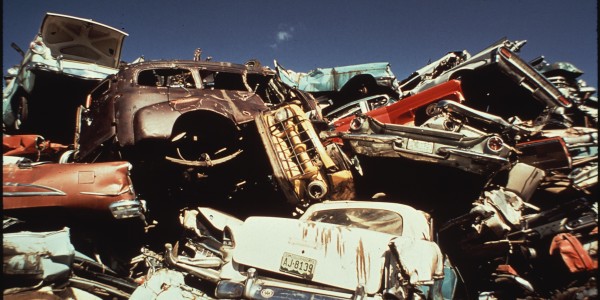It’s hard not to have an impact on the environment. Really, there’s no way that you can exist without affecting the environment in some way. If you drive to the grocery store to buy some burger patties, there’s the environmental cost of the fuel you burned on your way to the store, as well as the impact of the cattle farm that made those patties. If you take the opposite approach and bike to the grocery store to buy some vegetables, there are still the costs of your bicycle being made, the paved roads, the gas the farm burned to get those vegetables in the store, etc. Every time you flip on a light switch, you’re contributing to a negative impact on the environment.
The point is, everyone has an impact on the environment, no matter how hard they try to avoid it. However that doesn’t mean that it’s futile to try and reduce your carbon footprint. But even if you are able to limit your personal impact on the environment, your commute to the grocery store doesn’t even register when compared to the manufacturing industry.
Up until the 1960s, the global population exceeded CO2 emissions. However, the planet’s carbon dioxide output has been greater than the population for the past half century. Increased industrialization is partly to blame for this change.
The manufacturing industry has a huge impact on the environment, but that also means that improvements by manufacturers to be more eco-friendly are much more significant than you riding your bicycle.
Despite manufacturing’s impact on the environment, it’s an industry that’s indispensable to the world’s economy. That’s why it’s important to reduce the affect that manufacturing has on the environment.
Many countries have started to enforce stricter environmental guidelines for manufacturers, such as energy consumption regulations and environment protection acts. This is one of the reasons that the servo market is expected to increase over the next few years.
Servomotors are more efficient, and more environmentally friendly, than other types of motors currently used in many factories. The amount of energy that will be saved by efficient electric servomotors will really add up over time.
Something else that makes servos more environmentally friendly is the fact that they practically last forever. Longevity means less materials sued, and less that ends up in junkyards and landfills.
Servos may rhetorically last forever, but they don’t literally last forever. Your Indramat servomotors will need maintenance and repair over time. When that time comes, give us a call!
